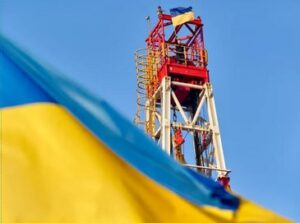
In 2023, Naftogaz Group increased production from workover wells by 20% compared to pre-war 2021, which was a record high for the last four years.
“This figure is 20% higher than production in pre-war 2021. I am sincerely grateful to the specialists of Ukrgazvydobuvannya and the entire team that made this result possible,” the group said on its website, citing Naftogaz CEO Oleksiy Chernyshev on Thursday.
Recently, Ukrgasvydobuvannya JSC (UGV), a part of the Naftogaz group, has overhauled and restored an old well, which now additionally produces more than 340 thousand cubic meters of gas per day.
This well had been awaiting abandonment for a long time, but in 2023, experts conducted a detailed analysis, reviewed technical and geological risks, and decided to restore the well through workovers.
“Our experts are constantly working on reviewing and analyzing old wells that can be brought back into operation due to better technical capabilities than decades ago,” commented Oleh Tolmachov, Acting CEO of Ukrgasvydobuvannya.
As reported, in 2022, Ukrgasvydobuvannya produced 12.5 bcm of natural gas (commercial), which is 3% less than in 2021. According to operational data, the company increased production by more than 0.7 bcm in 2023.
NJSC Naftogaz of Ukraine owns 100% of Ukrgasvydobuvannya shares.
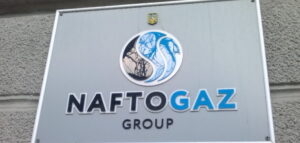
In January 2024, Naftogaz Group companies paid UAH 5.6 billion in taxes to the state budget of Ukraine.
“8.5% of all tax revenues to the state budget of Ukraine in January 2024 are taxes paid by Naftogaz Group. We are talking about the amount of UAH 5.6 billion,” the group said on its website on Tuesday.
Another UAH 0.5 billion was transferred to local budgets.
“Naftogaz Group remains one of the largest taxpayers in Ukraine and a reliable support for the state budget. In total, over 31 days of January 2024, we have already paid UAH 6.1 billion in taxes to the country’s consolidated budget,” the group’s CEO Oleksiy Chernyshev said as quoted on the website.
As reported, in 2023, Naftogaz Group companies paid UAH 90.2 billion in taxes, UAH 83.4 billion of which went to the state budget and UAH 6.8 billion to local budgets.
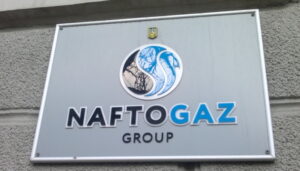
Naftogaz Group companies paid UAH 90.2 billion in taxes in 2023.
“Last year, our group of companies transferred: UAH 83.4 billion to the state budget, UAH 6.8 billion to local budgets,” Naftogaz said on its Telegram channel on Monday.
It is specified that, in particular, in December 2023, the group’s companies transferred UAH 6 billion to the state budget and UAH 0.5 billion to local budgets.
“The energy security of our country is one of the key tasks of the Naftogaz Group. However, contributing to Ukraine’s economic development is equally important. We continue to be one of the largest taxpayers for the state,” Naftogaz CEO Oleksiy Chernyshov said as quoted on the company’s website.
At present, Gas Supply Company Naftogaz of Ukraine LLC continues to supply gas to 12.3 million consumers. It has signed 1,242 contracts with 449 district heating companies and 793 condominiums.
In addition, it is noted that 7 CHP plants managed by the group continue to provide heat to thousands of Ukrainians in Kamianske, Kryvyi Rih, Novoyavorivsk, Novyi Rozdil, Mykolaiv, Odesa and Kherson.
“Gas reserves in Ukrainian storage facilities are sufficient for the successful completion of the heating season,” Naftogaz said.
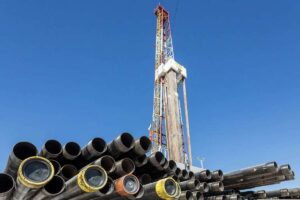
Naftogaz Group has increased gas production by more than 400 thousand cubic meters by launching three wells in November, its CEO Oleksiy Chernyshov said.
“We continue to increase Ukrainian gas production! In November alone, three high-rate wells were put into operation (…). In total, in November we have an additional 400 thousand cubic meters of gas per day!” he wrote on his Facebook page on Friday.
Chernyshov clarified that two of the mentioned wells are new. Their launch was the result of the implementation of the largest 3D seismic survey program in the history of modern Ukraine and the high professionalism of Naftogaz specialists. The third well is a rehabilitated well that had been in the liquidation fund for 35 years.
As reported, in 2023, Ukrgasvydobuvannya set a goal to increase natural gas production by 1 billion cubic meters to 13.5 billion cubic meters. In 2022, the company produced 12.5 bcm of natural gas (commercial), which is 3% less than in 2021.
NJSC Naftogaz of Ukraine owns 100% of Ukrgasvydobuvannya shares.
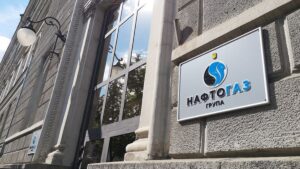
In January-October 2023, Naftogaz Group paid UAH 75.4 billion in taxes to the state and local budgets.
According to the Group’s press service, the state budget received UAH 69.8 billion, which is 11.5% of the payments controlled by the State Tax Service of Ukraine, and almost UAH 6 billion went to local budgets.
“Our work is not only about the country’s energy sustainability, it is also about economic sustainability. In October, our companies paid UAH 4.7 billion to the state budget. We are constantly working to increase our profits, which in turn affects the growth of contributions to the country’s budget,” commented Oleksiy Chernyshov, Chairman of the Group, as quoted in the release.
As reported, in 2022, Naftogaz Group transferred almost UAH 100 billion to the budgets, and in 2021 – UAH 116 billion.
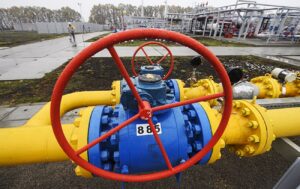
“Chernihivgaz” JSC has come under the management of “Naftogaz” Group, the company’s press service said on Tuesday.
“Chernihivgaz” became the 18th enterprise to come under state control.
The company delivers gas to almost 360,000 homes, regulates its distribution to budgetary and religious organizations, industrial facilities and municipal heating enterprises,
“Chernihivgaz” joined the “Naftogaz” Group as part of the transfer of gas distribution companies to state control. At present, personal accounts of customers, as well as tariffs for distribution services, remain unchanged”, the statement said.
As reported, at the end of May 2022, at the request of the State Bureau of Investigation (SBI), the court transferred the seized private corporate rights to 26 regional and city gas distribution system operators to the management of the ARMA.
In September 2022, “Naftogaz” of Ukraine registered Gas Distribution Networks of Ukraine LLC (“Gazomerezhi”), whose main activity is gas distribution through local pipelines.
By Resolution No. 1335 dated November 25, 2022, the Cabinet of Ministers transferred state-owned gas distribution networks to “Gazomerezhy” for operation.